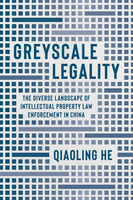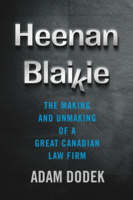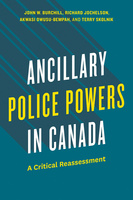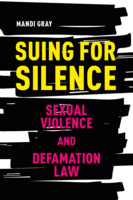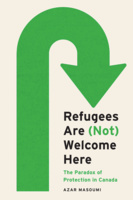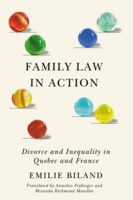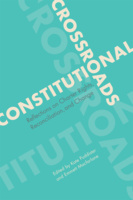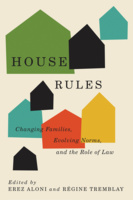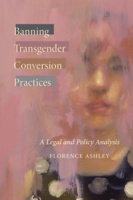Law and Society

Founding editor: W. Wesley Pue
The Law and Society Series explores law as a socially embedded phenomenon. It is premised on the understanding that the conventional division of law from society creates false dichotomies in thinking, scholarship, educational practice, and social life. Books in the series treat law and society as mutually constitutive and seek to bridge scholarship emerging from interdisciplinary engagement of law with disciplines such as politics, social theory, history, political economy, and gender studies.
Challenging Exile
Japanese Canadians and the Wartime Constitution
Challenging Exile delves into the origins, experience, and aftermath of a shameful moment in Canada’s past: the government’s attempt to exile thousands of Japanese Canadians after the Second World War.
Greyscale Legality
The Diverse Landscape of Intellectual Property Law Enforcement in China
Greyscale Legality provides a sharp and systematic analysis of how legal texts and industry contexts interact to shape the enforcement of intellectual property law across Chinese industries.
The Independence of the Prosecutor
Controversy in the Creation of the International Criminal Court
This compelling investigation shows how an independent prosecutor, who can initiate investigations without states’ assent, became a key part of the International Criminal Court.
Heenan Blaikie
The Making and Unmaking of a Great Canadian Law Firm
What really happened at Heenan Blaikie? This is the ultimate account of what went on behind the scenes of the largest law firm dissolution in Canadian history.
Ancillary Police Powers in Canada
A Critical Reassessment
Ancillary Police Powers in Canada investigates the scope of police powers under Canadian common law, and the implications for our rights, freedoms, and individual liberty.
Constraining the Court
Judicial Power and Policy Implementation in the Charter Era
Constraining the Court considers what happens when a statute involving a significant public policy issue is declared unconstitutional – and government disagrees.
Canada’s Surprising Constitution
Unexpected Interpretations of the Constitution Act, 1982
Canada’s Surprising Constitution asks why the Constitution Act, 1982, keeps generating unexpected interpretations and outcomes.
Suing for Silence
Sexual Violence and Defamation Law
Suing for Silence exposes the phenomenon of lawsuits whose purpose is to silence those who disclose sexual violence, revealing the gendered underpinnings of Canadian defamation law and its chilling effect on public discourse including formal reports of sexual violence.
Refugees Are (Not) Welcome Here
The Paradox of Protection in Canada
Refugees Are (Not) Welcome Here details the paradox of the simultaneous expansion and restriction of access to refugee rights in Canada.
The Notorious Georges
Crime and Community in British Columbia's Northern Interior, 1905–25
The Notorious Georges is an engaging exploration of the alchemy of community identity and reputation in Prince George, BC, once branded Canada’s most-dangerous city.
Family Law in Action
Divorce and Inequality in Quebec and France
Family Law in Action examines the inequalities produced by divorce and separation in France and Quebec.
Constitutional Crossroads
Reflections on Charter Rights, Reconciliation, and Change
Four decades after the adoption of the Constitution Act, 1982, Constitutional Crossroads assesses its legacy, focusing on the themes of rights, reconciliation, and constitutional change.
Power Played
A Critical Criminology of Sport
Power Played represents a distinctly critical criminology of sport, blowing the whistle on the harm, violence, and exploitation embedded in contemporary sport and sporting cultures.
House Rules
Changing Families, Evolving Norms, and the Role of the Law
House Rules takes a hard look at the law and norms governing family life, compelling readers to rethink entrenched inequalities in familial relationships and proposing ways to approach legislative solutions.
Banning Transgender Conversion Practices
A Legal and Policy Analysis
Banning Transgender Conversion Practices is the first book to offer a comprehensive analysis of how conversion practices targeting transgender people are regulated around the world.


